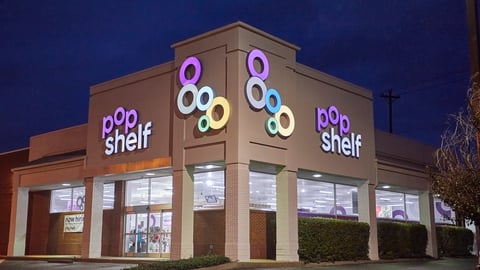Delivery robots come to Austin, Texas
A remotely piloted robotic delivery service is fulfilling orders for quick service restaurant retailers in the Austin, Texas, market.
Los Angeles-based Coco, which launched in its home city in 2021, is starting a planned national expansion with 10 independent and small chain quick-service restaurants in Austin.
Coco, which recently received a Series A funding round of $56 million, is targeting expansion to the Dallas, Houston, and Miami markets in the next few months. According to Coco, its robotic delivery service provides a 30% decrease in time-to-customer and an on-time delivery rate of 97%.
After a customer places a delivery order at a participating restaurant, a remotely piloted Coco robot drives to the restaurant to pick up the order. Staff then loads the robot with the order as soon as it is ready, and the robot makes the delivery in 15 minutes or less.
Four-wheeled Coco robots are fully electric with zero carbon emissions, are remotely piloted by vetted and trained human operators, and provide contactless delivery with no courier handling. Remote operators are trained to yield to pedestrians and pull-over as needed, and the robots emit sound to inform the visually impaired of their presence. New vehicles allow for two-way communication between the pilots and pedestrians.
Coco launched in Austin with 10 partners, including Arpeggio Grill, Bamboo Bistro, Clay Pit, DeSano Pizzeria, Tuk Tuk Thai, and Aviator Pizza, and will continue to onboard more Austin restaurants over the coming weeks. The initial launch includes retailers servicing the South Lamar, South Congress, South Austin, Downtown, Northside, North Loop, and Domain neighborhoods of Austin.
Robotic delivery goes mainstream
Robotic delivery, both with piloted and fully autonomous devices, is expanding beyond its large-retailer origins with the Amazon Scout device. Other mid-to-large-sized retailers that have since tested four- and six-wheeled robotic delivery vehicles include Safeway and SaveMart.
Meanwhile, Cincinnati/Northern Kentucky (CVG) Airport recently partnered with autonomous robot startup Ottonomy Inc. to deliver retail and food items in one of its concourses via the company’s “Ottobot” robots.
Los Angeles- based casual dining chain Crave is also partnering with Ottonomy to provide last-mile food delivery for its restaurant customers via Ottobot robots. Ottobots create a digital map of the serviceable area and localize within that map. The robots’ live location gets updated on the map while they are navigating autonomously to deliver the orders.
And the University of Arizona and Ohio State University both teamed up with Grubhub and Yandex Self-Driving Group to roll out on-campus delivery via Yandex robots. Yandex's new third-generation robots autonomously navigate pavements, campus crosswalks, and pedestrian areas at speeds between three to five miles per hour. Other features include removable batteries, additional cameras, a new design that provides increased robot capacity, LED headlights, and softer suspension designed to make it easier for the robots to traverse challenging terrain, such as high curbs.
"When evaluating markets for expansion, Austin stood out to the team as a perfect match," said Zach Rash, co-founder and CEO of Coco. "Austin's entrepreneurial spirit, top-notch food scene, and commitment to supporting small businesses makes it an ideal fit for Coco."







